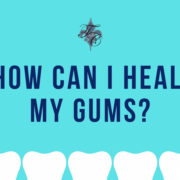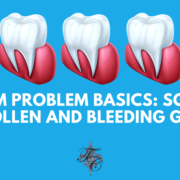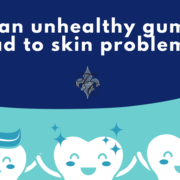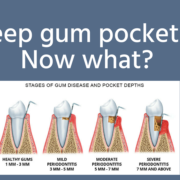How Can I Heal My Gums?
Research reveals that periodontal or gum diseases affect 20 to 50% of the global population. Unfortunately, more than 36% of the worldwide population suffers from dental fear or anxiety.
If you’re one of those 36% people, you’ll be glad to hear you can treat painful or receding gums at home. Let’s discuss simple yet effective ways of healing your gums:
Top 6 Ways You Can Heal Your Gums at Home
Here we discuss several ways you can heal your gums quickly and effectively:
- Trying Warm and Cold Compresses
An excellent way of reliving painful or swollen gums is by applying hot or cold compresses:
-
- Hot Compress- Start by heating some water and grabbing a clean cloth. Soak the fabric in the warm water and place it on the affected area
- Cold Compress- Wrap an ice pack in a clean cloth and apply it to the side of gum pain
- Rinsing with Saltwater
Gargling with salt water is an excellent way of combating potentially harmful bacteria and germs accumulating on your gums.
Make saltwater rinse to reduce gum swelling or pain:
-
- Mix a quarter teaspoon of salt into warm water
- Take a sip and swish it in your mouth
- Gargle before spitting the saltwater out
- Applying Hydrogen Peroxide
Hydrogen peroxide helps fight germs and other oral problems, like gum inflammation and swelling. Here’s how you can use hydrogen peroxide to combat gum diseases:
-
- Mix 1:1 part water and hydrogen peroxide
- Swish the created solution in your mouth for at least 20 seconds
- Spit the peroxide-water mixture on the sink
- Rinse your mouth with warm water
Alternatively, you may make hydrogen peroxide and baking soda paste.
- Swishing Oil
Oil pulling is another remarkable way of preventing and reducing gingivitis and plaque. Grab high-quality coconut or sesame oil and then follow these steps:
-
- Put a spoonful of oil in your mouth
- Swish it for about 20 minutes
- Spit the oil out
- Rinse your mouth with water
- Brush your teeth
Swishing coconut or sesame oil helps pull the plaque sticking to your gums.
-
- Using Tea Bags
Most tea variants include a specific plant compound called tannins. Tannins help combat gum pain and swelling by eliminating bacteria and germs.
Green, black, and hibiscus teas contain a substantial amount of tannins. Other variants of teas include ginger or chamomile, which helps combat inflammation.
Here’s how using tea bags can help reduce gum pain:
-
- Add a teabag in boiled water
- Remove it after several minutes and allow it to cool
- While the tea bag is warm, apply it to the affected area
- Leave it on your face for about five minutes
- Creating an Aloe Vera Mouthwash
Aloe vera effectively reduces plaque, decreases gingivitis, and alleviates gum pain. A plus of making aloe vera juice is that you don’t have to dilute it.
But before using an aloe vera mouthwash, ensure it’s 100% pure:
-
- Swish aloe vera mouthwash in your mouth for about 30 seconds
- Spit out the solution
- Repeat the process two to three times every day
Ensure that you purchase aloe vera from a reputable source.
The Bottom Line: When Should You Seek a Dentist?
Gum diseases may indicate oral or even heart diseases. If the solutions discussed above don’t offer relief and bleeding or swollen gums persist, consider visiting your local dentist.
Speak to Dr. Chauvin from Lafayette Dentist Chauvin to ensure healthy gums and sparkling teeth. Dr. Chauvin will examine your teeth and gums, review your oral health history, and discuss your dental hygiene goals to offer the best advice.
At Tim Chauvin, DDS & Associates, we offer high-quality services to patients across Lafayette and surrounding areas. Give us a call at (337) 234-2186 or book an appointment to start your journey towards healthier and beautiful smiles.




